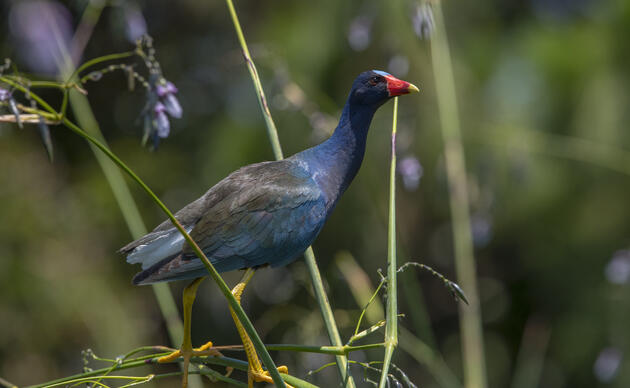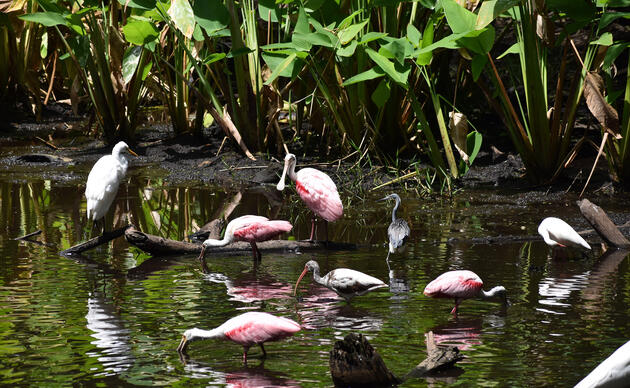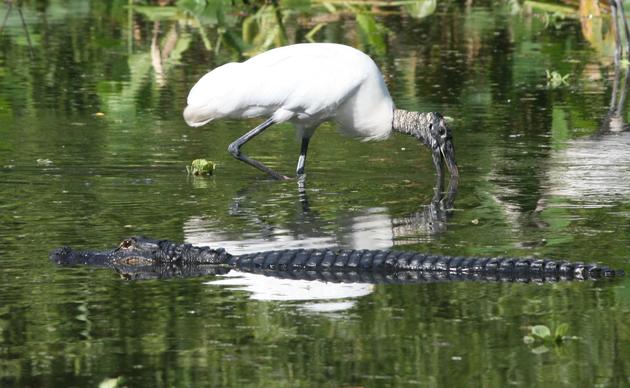This has been a tremendously exciting year for Corkscrew Swamp Sanctuary’s research team and our effort to better understand the nature of our changing hydrology. In 2015, a preliminary examination of long-term water level data from the Sanctuary suggested a change in annual water level patterns. Over the last five years, our team has worked to better understand and describe a marked over-drying of the Sanctuary during the dry season. This change has important implications for the Sanctuary’s plant communities, wildlife, and vulnerability to catastrophic wildfire, in addition to our region’s freshwater supply. We have taken the first step in understanding the root cause of this hydrologic change in hopes that we can stop or reverse the ecological damage to our wetlands.
Early this year, Audubon partnered with South Florida Water Management District’s Big Cypress Basin for a one-year modeling study focused on unraveling and understanding three potential causes of our hydrologic change: increased evapotranspiration from the conversion of wetlands to woody shrubs, groundwater pumping (from municipal well fields and agriculture), and downstream drainage (from canal operations). While the project will not be finalized until February 2021, we have learned that all three of these stressors impact the Sanctuary to some degree. Our team is working to propose some solutions that have the potential to reverse much of our dry-season water loss.
This project is a huge win for our region and our state as it provides valuable information about how changes in land use adjacent to wetland ecosystems can disrupt natural processes. This information will help us better protect the Sanctuary and can ultimately help the scientific community understand how to protect many more of Florida’s special places.



